Chapter 1: An Introduction
Four years ago, on 27 July 2020, I was on a small speedboat headed to Rakeedhoo in Vaavu Atoll. As mostly typical in July, the sea was rough and we were tossed in the air and slammed back down throughout the two hour long journey. The captain was unfazed, and so were the rest of my companions aboard – officials from the Local Government Authority and the Ministry of National Planning, Housing and Infrastructure as well as two Members of Parliament; MP Hussain Qasim who represented Keyodhoo constituency which included Rakeedhoo and MP Mohamed Waheed, a member of the Decentralization Committee of the People’s Majlis. In fact this particular trip had been rescheduled twice over the previous two weeks due to unfavorable weather conditions to travel by sea. We were all as concerned however about the difficult circumstances surrounding the trip as about the raging ocean. Travel restrictions in place due to Covid19 lockdown meant we were not allowed to stay at the island, and the local council of Rakeedhoo had also conveyed they would prefer if the team from Male went just for the public consultation and left right after. Anxiety around Covid19 was still high and we had to keep this in mind. We made a stop at a nearby resort – it was empty of guests, and the sky was already dark, the journey having taken longer than we expected. The meeting with the Rakeedhoo community was scheduled for 9 pm, at the island’s stadium, an open air venue and with social distancing.
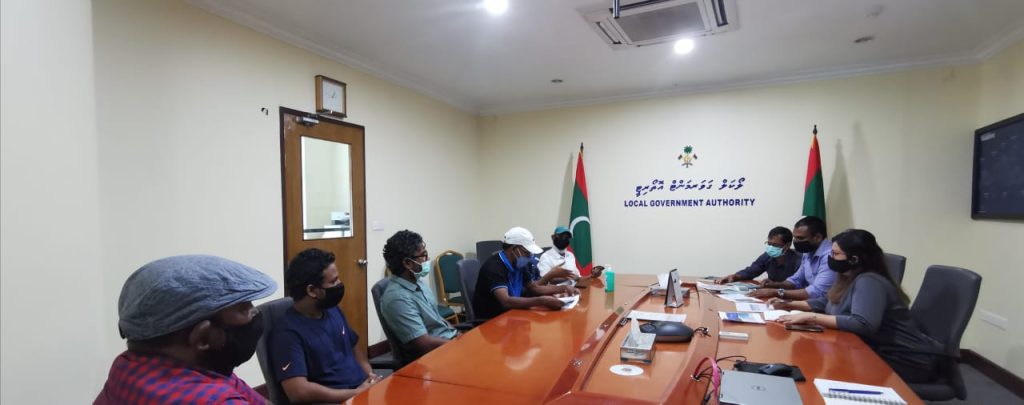
Let me delve into the reason why we were in Rakeedhoo, at a time of rough seas and travel restrictions, intending to conduct a community meeting. The Ministry of National Planning, Housing and Infrastructure had initiated the construction of a harbor in Rakeedhoo. A harbor is among the most requested infrastructure projects by island communities, along with sewerage systems, waste management facilities and reclamation to address housing needs, so this would generally have been a cause for celebration in the community. What resulted though was fierce disagreement amongst the people of Rakeedhoo on the design and location of the harbor project. They were almost equally split into two camps; one that wanted the project to go ahead, claiming a harbor was direly needed for ease of transport of people and goods, and one that insisted the harbor would cause erosion of the beach, destroy the shoreline and affect local tourism. Two petitions were circulated and presented to relevant government agencies, including the LGA. A 100 signatures lobbied for the project to proceed as planned. 113 (and later 123) people called to seek alternative options considering possible adverse environmental effects, and proposed some ideas. Their differing viewpoints were intriguing. Those who wanted a traditional harbor claimed most of the signatories opposed to the project were living in Male or other islands, or backed by investors involved in local tourism ventures, and could not comprehend the difficulties those on the island faced on a daily basis. Some of the petitioners in the opposing camp responded they had been forced to leave out of necessity for health, education and employment needs, but still had a rightful say in issues pertaining to development of the island. Collecting these numbers of signatures for both petitions would have been an arduous task even in a bigger island. The fact that Rakeedhoo had a population of just 370, with eligible voters at 284, drove home the seriousness of the issue to the community and intensity of the division, in which the council was also accused of being biased.
As the debate escalated, the project was halted and LGA intervened. Following several online meetings with other authorities and Rakeedhoo’s island council, and a couple of rescheduled trips later, we made it to the consultation with the community. At a dimly lit stadium where we could hardly make out the faces of the audience, the team from the Ministry showed projected images on the screen. The technical experts explained that the typical harbor design did not have to be replicated across the country, and highlighted the merits of one that considered the island’s unique environmental and geographic features, such as was done in Baa Atoll Fulhadhoo. They proposed a third model that was suited for Rakeedhoo with minimal impact on the beach and lagoon. MP Waheed spoke on the importance of protecting the environment while pursuing development goals. The team from LGA, including myself, spoke on the importance of community engagement and consultation, but also the possibility of seeking middle ground based on local knowledge provided by the community and technical expertise to achieve the best results that served everyone’s purposes. The turnout was good as expected, and members of the community spoke and asked questions for over 2 hours, with one attendee pointing out that most of those residing out of the island had been unable to travel due to bad weather and restrictions, and were not represented sufficiently. When we wrapped up way past midnight it was decided the project would proceed as planned, and the majority got what they wanted. The council was strongly in favor of this view as well and most residents feared any change in the project would mean the much-awaited harbor would not materialize again for a long time.
Did local governance fail?
Following the Rakeedhoo incident, debate initiated among the wider public, with many asking the need for community consultation and alleging influence on the community’s decisions by outsiders with vested interests, and others criticizing the role of the island’s council, and even the need for LGA to intervene. There were views such matters should be left to the central government without interference of the council or community. In my personal view, intervention by the LGA or any other relevant authority was necessary to address the concerns of both sides in a fair manner, community consultation and attaining input from local level leadership are essential, and the fact that the desired result was not the actual outcome should not be reason to blame the community or to question the necessity for local governance. What must be noted is this incident stimulated dialogue on the ‘acceptable’ extent of the public’s involvement and engagement, and was utilized by those who regarded decentralized governance with skepticism as validation of their stance.
Was this a lesson in failure of relying on local level leadership and leaving decision making on development projects to the community? Or a case of extreme polarity that left too little room for dialogue and compromise? I would favor the latter. Where local governance has functioned effectively to protect the interests of the community, it has done so tremendously.
When local governance is done right
Fast forward to 20 September 2021. I was headed to Rasdhoo in Alif Alif Atoll, accompanied this time by officials of the Ministry of Tourism, the Environmental Protection Agency (EPA) and fellow colleagues from LGA. The development of Veligandu resort in close proximity to Rasdhoo had raised alarm, and both AA Atoll Council and Rasdhoo island council had conveyed concerns of the community with regard to dredging in the popular dive spot known as Madivaru reef. Following online meetings and requests by both councils to visit the site, LGA had intervened and requested the presence of relevant authorities. At Rasdhoo we met with both the councils and some of the community members lobbying for an immediate halt to what they perceived to be irreversible environmental destruction as well as complete ruin of a tourist attraction in an atoll where local tourism was thriving. It was, according to them, a matter of both conserving natural heritage of the atoll as well as safeguarding livelihoods of numerous families dependent on the hospitality industry. We did visit the site as well and saw indications of the work that was ongoing. Working as a unit the council and community succeeded in protecting the island’s interests.
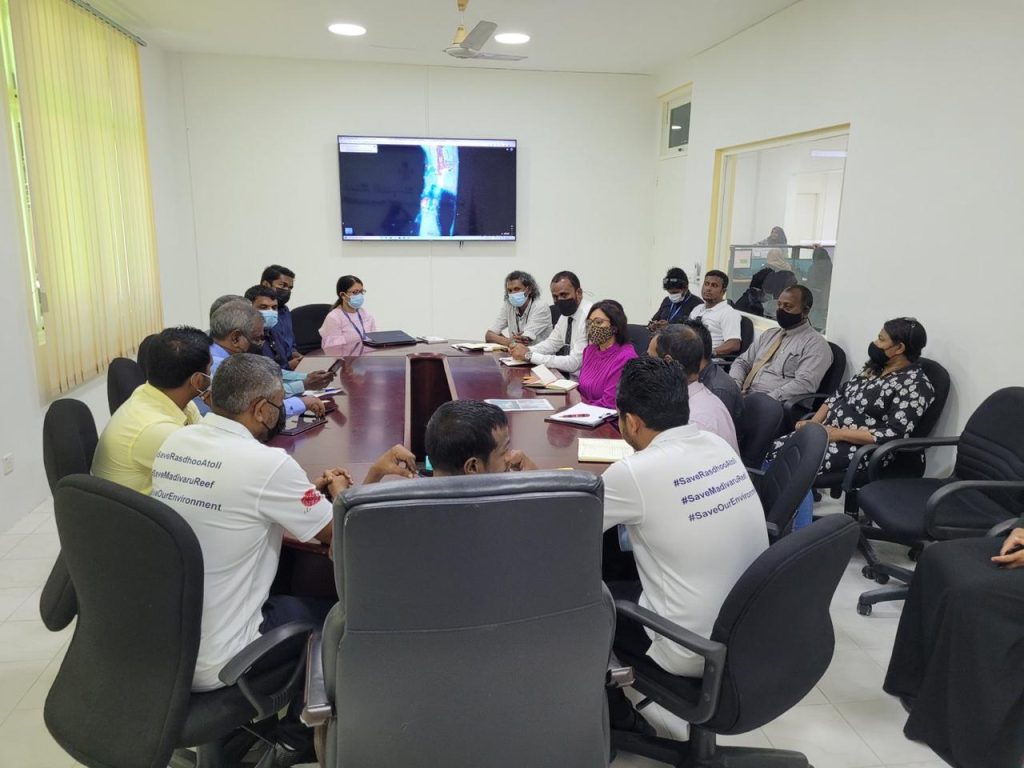
There are cases where local governance is perceived to be failing, but a deeper study would reveal there are often other issues at play. In 2023, Male City faced a ‘waste crisis’ of sorts. The residents of Male City were left wondering why their trash was not being cleared, and amidst the confusion of who was to assume responsibility, media headlines continued to report statements of relevant institutions embroiled in a tense blame game1 . On LGA’s request a meeting was convened at the Ministry of Environment, Climate Change and Technology bringing together Male City Council, WAMCO, EPA, HPA, the Ministry and LGA. With proper communication and collaborative efforts agreed upon, the issue was resolved and misunderstandings were clarified, leading to more favorable arrangements for all parties. Sometimes all it takes is an effort to find common ground between authorities of the central government and local government, but this crucial step is often not taken when and how it is needed.
In an interview I gave to Maldives Financial Review in November 20212, I highlighted the wonderful initiatives councils were taking, from the bike scheme for school children and elderly wellness programs in Noonu Kudafari to exemplary resource sharing among state institutions in Noonu Maafaru, from Shaviyani Kanditheemu council which has completely changed to solar power for its office and planned to expand further to the community to Baa Kihaadhoo’s impressive waste management system. When trusted with the resources that would enable to provide services efficiently and tailored to their communities’ needs, local councils have proved to be reliable, responsive and responsible. This was most clearly seen during the Covid19 crisis when island councils effectively managed to undertake quarantining duties as well as monitoring and ensuring stocks of staples, fuel and medical and protective equipment in their islands. They also took on additional duties with regard to local tourism when borders opened up again. While acknowledging the efforts of various institutions during the crisis, local councils’ contribution to the national effort is often overlooked and downplayed.
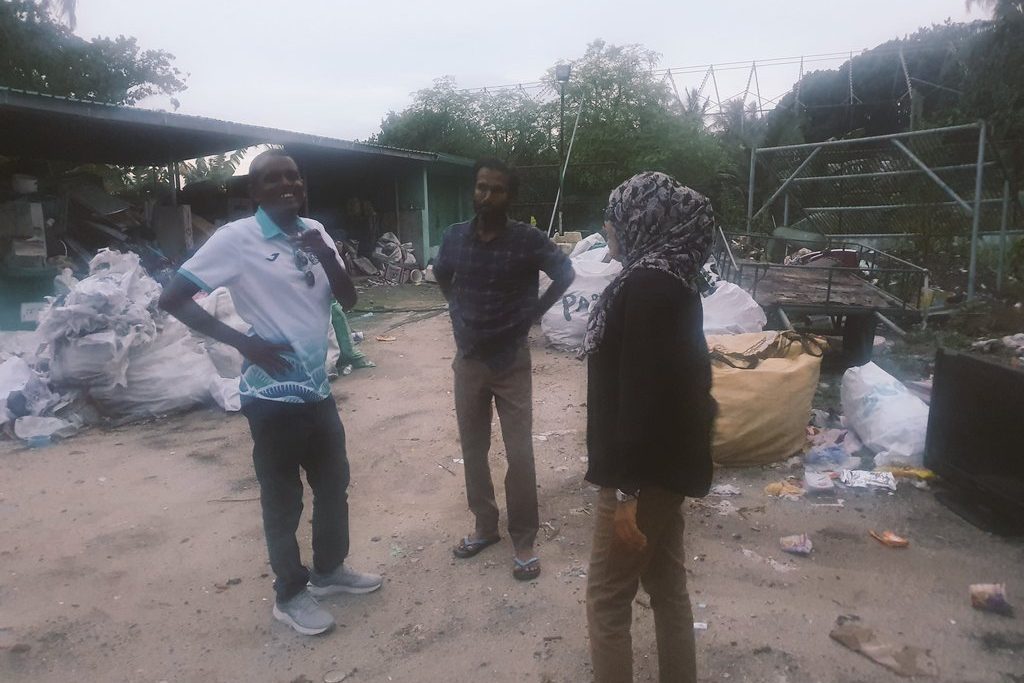
I am able to recount numerous instances where atoll and island councils have stepped in to protect their mangroves, reefs, community spaces, cultural heritage, economic interests and many more, over the past four years or so. Along with my colleagues I had the enlightening opportunity to facilitate dialogue and discussion on many of these occasions, and with every experience my faith in the power and potential of meaningful decentralization and responsible, representative, participatory local governance was reaffirmed, be it the experience of Rakeedhoo or Rasdhoo.
Faith in the local governance system
Since the ratification of the Decentralization Act in 2010, we have witnessed immense changes and rapid evolution of the local governance system. I will claim without hesitancy no other system in the country has been impacted as significantly, for better or worse, following every change in administration and transfer of power. The Decentralization Act itself is the most fervently amended legislation in the country. Depending on the political ideologies and policy objectives of the government we continue to see decentralization enhanced or curtailed, local governance elevated or restricted, and community engagement empowered or discouraged. Given this change in stance every 5 years, I staunchly believe the current system has not had breathing space and time to function as effectively as it could have to garner the trust and confidence it deserves. But local level leadership still appears to fare better when it comes to public perception. The National Survey of the Republic of Maldives November – December 2023, a study undertaken by the Center for Insights in Survey Research, a project of the International Republican Institute, reports a remarkably high level of confidence in local level leadership across the country3. According to the study, 66% ranked corruption using government funds at the national level as the most important aspect of corruption to be addressed, while only 6% noted the same at local level. City or island councils ranked higher than the courts, the Parliament, independent institutions as the Anticorruption Commission, Information Commission and the Human Rights Commission, and political parties, among others4. Public approval in specific areas also appeared to be on the rise. Compared with results of September 2022, local councils’ performance in areas as waste management, overall maintenance of public infrastructure, providing social security services, developing a sense of community, addressing public health concerns, economic empowerment opportunities, fiscal management and protecting natural resources, showed improved ranking5.
Despite the many positive attributes of local governance and need for effective decentralization in a country as the Maldives, councils continue to experience daunting challenges and setbacks. A key reason for this, I will contend, is the ever shifting policy of the administration in power with regards to decentralization. Policy directives and outlook of the political leadership have determined whether the system withered or flourished under their watch over the past 14 years. Local governance has been both venerated and vilified, celebrated and criticized by prominent political forces, to suit the agenda of the day. What can be decidedly said, however, is there is no system more transparent, accountable and in touch with the needs of their communities as local tiers of leadership working closely with their people. A myriad of experiences in governance from around the world points towards this conclusion.
In the next Chapter of this series, I will explore how the local governance system has evolved over the years and some of the reasons behind the immense changes the system has undergone in the Maldives
- Ahmed, F. 4 January 2023. The Edition https://edition.mv/presidential_election_2023/26724 ↩︎
- Maldives Financial Review. 4 November 2021. The Decentralization Dream https://mfr.mv/governance/the-decentralisation-dream Maldives Financial Review ↩︎
- National Survey of the Republic of Maldives November – December 2023. 2023. Center for Insight in Survey Research ↩︎
- Ibid ↩︎
- Ibid ↩︎
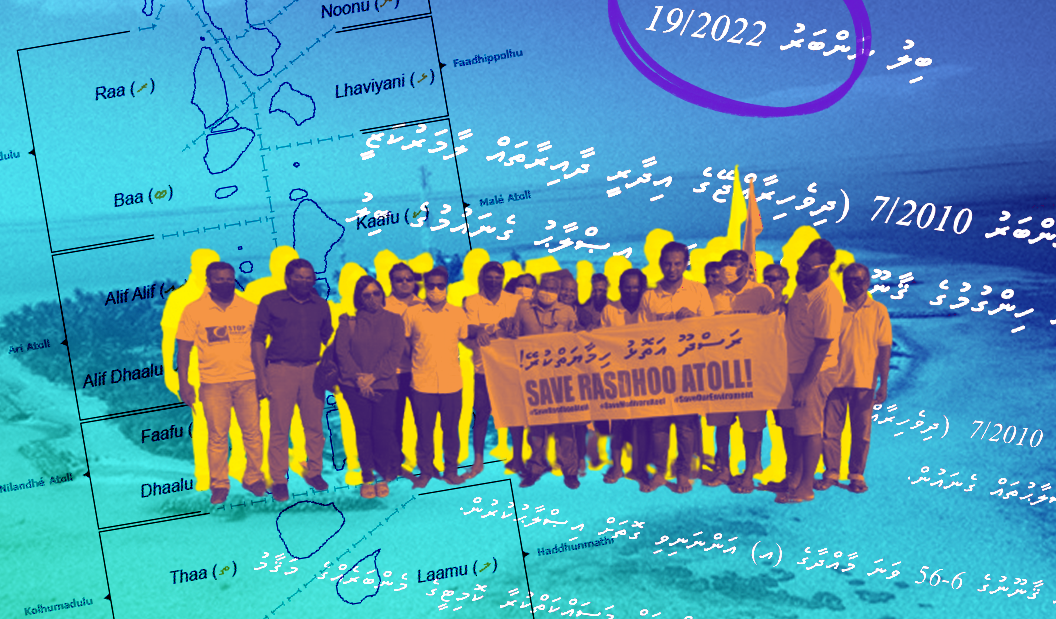
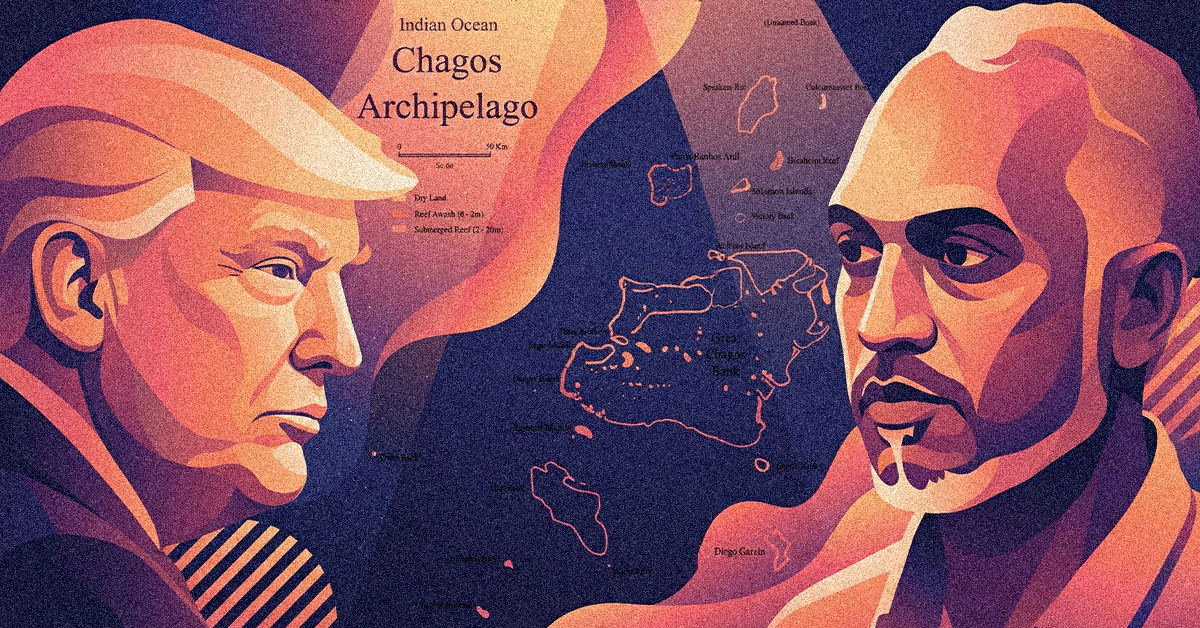
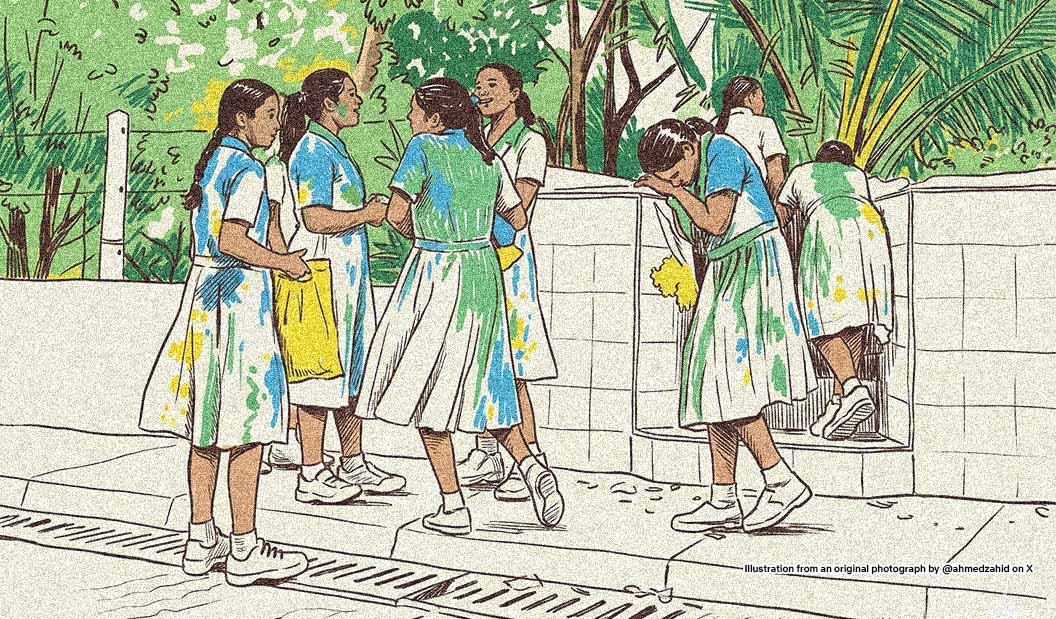
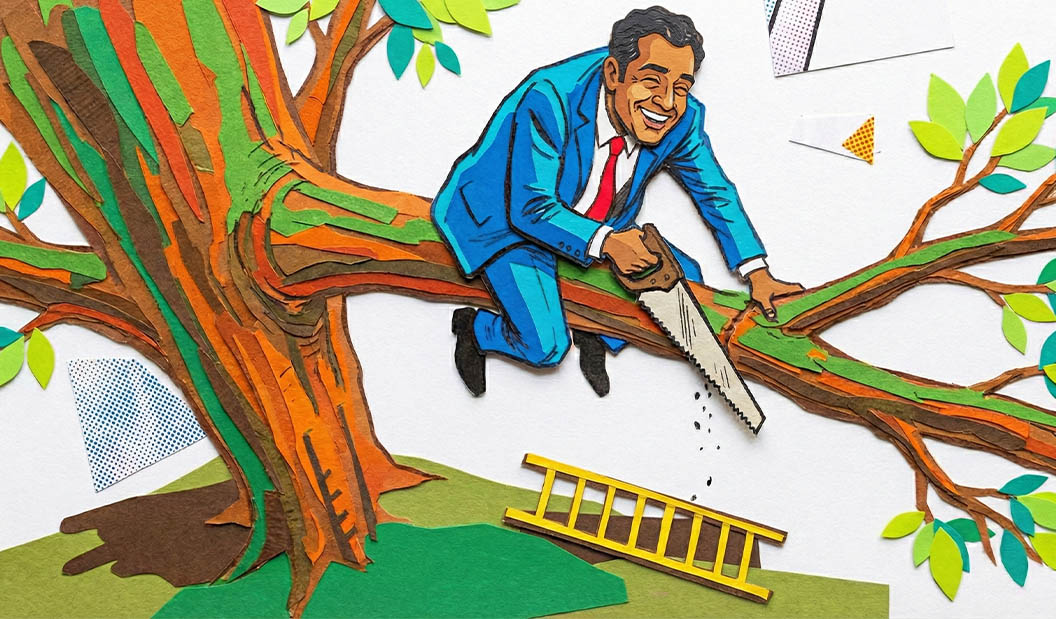
Leave a Reply